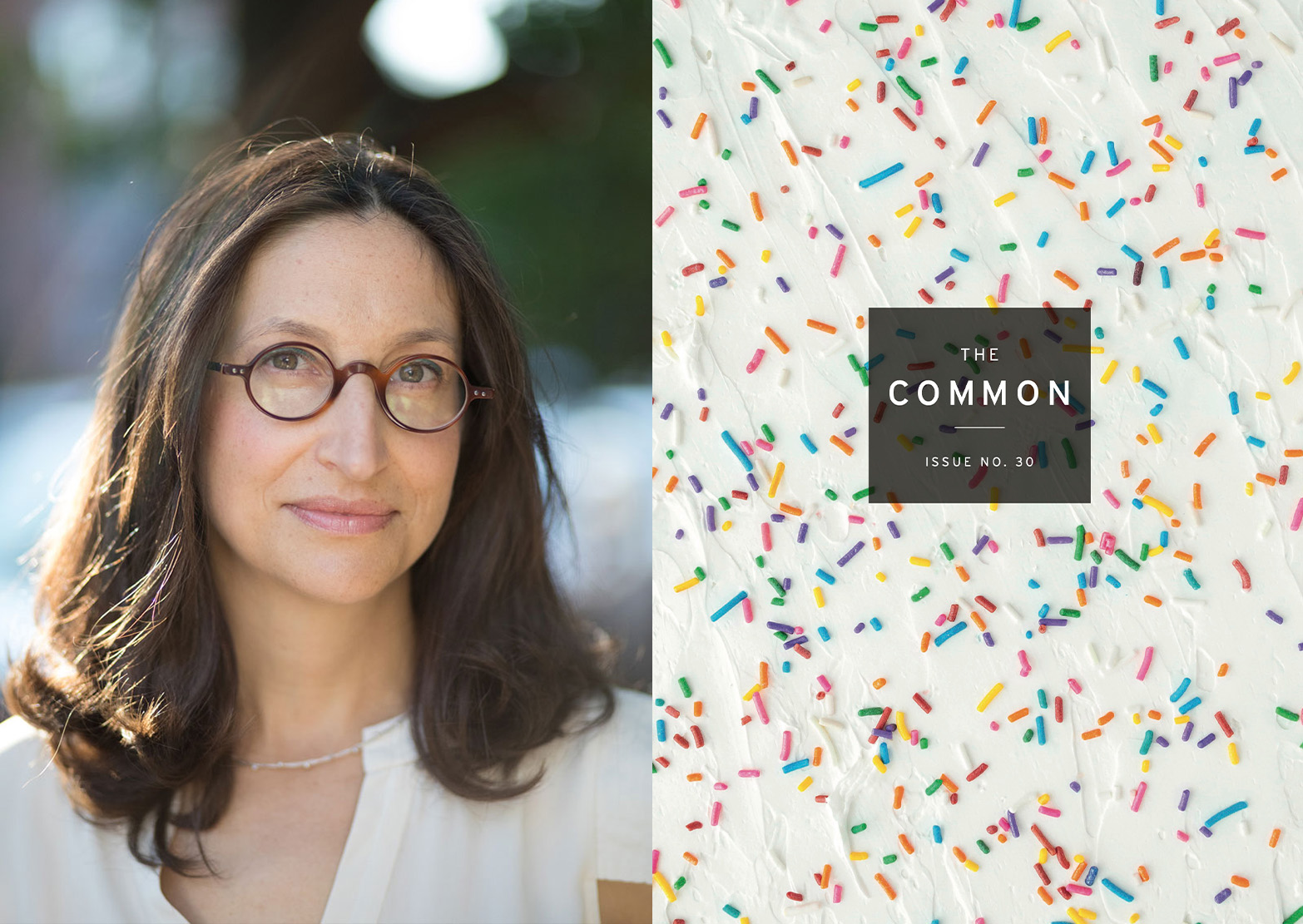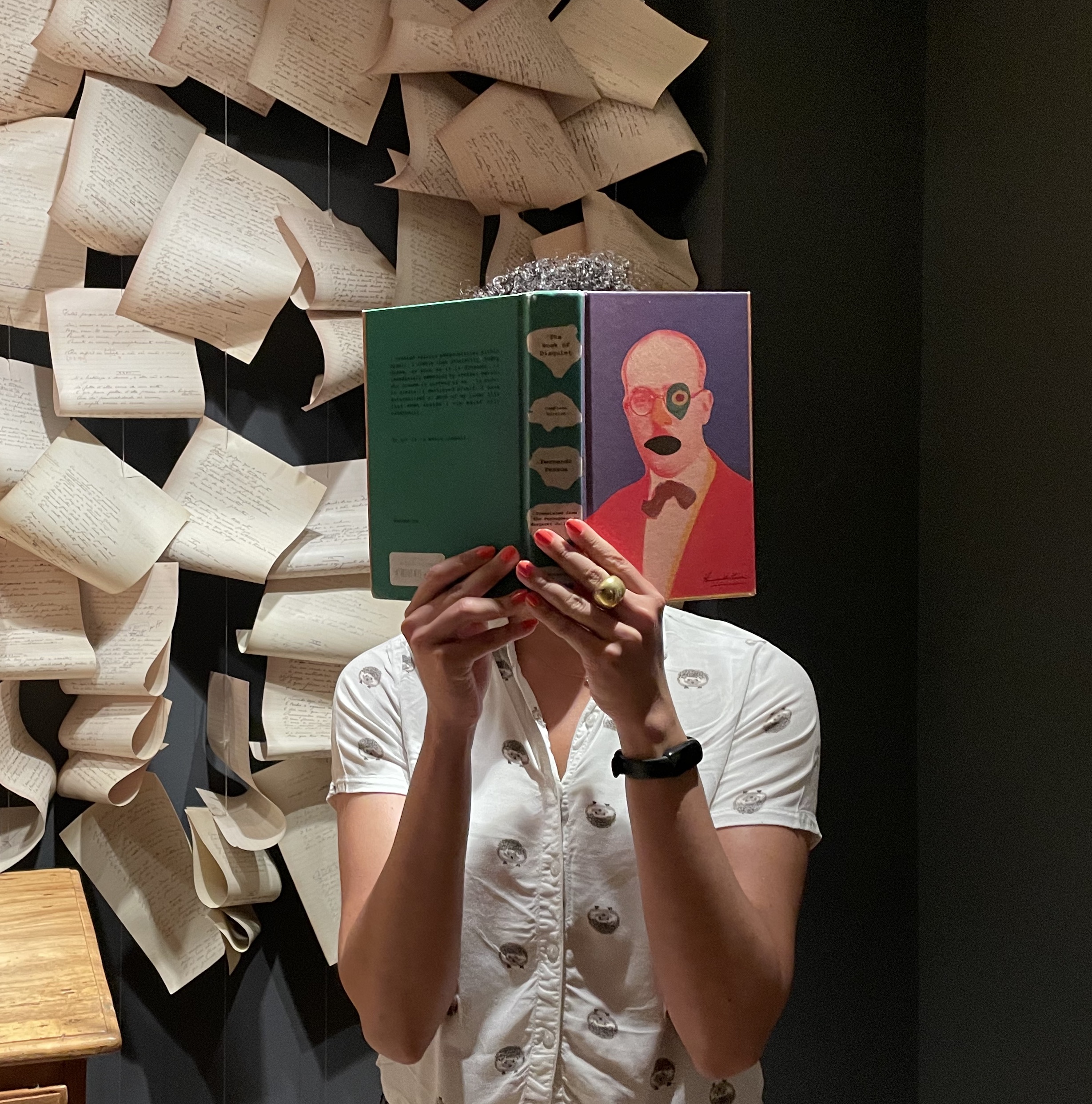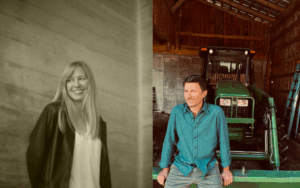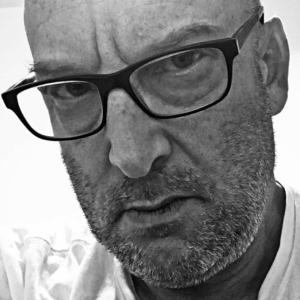Weekly Writes Vol. 10 has closed for signups. The program will run again this summer; please fill out this form to be notified when that round opens for signups.
The Most-Read Pieces of 2025
2025 was a momentous year for The Common: our fifteenth anniversary, our 30th issue, even a major motion picture based on a story in the magazine. We’re more grateful than ever for our readers, contributors, donors, and friends.
Before we close out this busy year of publishing, we wanted to take a moment to reflect on the unique, resonant, and transporting pieces that made 2025 memorable. The Common published 269 contributors this year. Below, you can browse a list of the ten most-read new pieces of 2025 to get a taste of what left an impact on readers.
*
Candy and Layer Cake: Zack Strait in Conversation with Richard Siken (and Five Poems)
“The whole world seemed like a five-paragraph essay but poetry rubbed against that. It was contrary and rebellious. That summer it rained a lot, and hard. We had a 100-year flood. It washed out bridges. I saw a house on the edge of a swollen wash lose its backyard and then get swept away. I didn’t want to talk about it, I wanted to make somebody feel it. I started writing every day. I was very bad at it. ”
—Richard Siken
Podcast: Jennifer Acker on “On 15 Years of The Common”
JENNIFER ACKER, founder and editor in chief of The Common, speaks to EMILY EVERETT about her essay “On 15 Years of The Common,” which appears in The Common’s recent fall issue. The piece is a reflection on the hard work and stick-to-itiveness it takes to train a horse—and keep a literary magazine running. Jennifer talks about how The Common has grown and expanded since its early days—when it was only her and a few student interns and section editors—including some highlights like favorite portfolios and a new film adaptation of a story from Issue 16.
Jennifer also discusses her forthcoming novel, Surrender, out in April 2026 from Delphinium. The book explores smalltown life, following a woman who returns to her family’s farm to raise goats, and encounters life challenges that extend far beyond farmwork.

December 2025 Poetry Feature #2: Lauren Delapenha, Aimee Nezhukumatathil, Robert Cording, and Rachel Hadas
New Work from LAUREN DELAPENHA, AIMEE NEZHUKUMATATHIL, ROBERT CORDING, and RACHEL HADAS
Table of Contents:
—Lauren Delapenha, “Exodus”
—Aimee Nezhukumatathil, “What They Didn’t Tell Me about Motherhood”
—Robert Cording, “A Sun”
—Rachel Hadas, “Matsinger Forest”

Exodus
By Lauren Delapenha
The Times article is about the president’s mind
and Xerox-based enterprises like Kodak, Blockbuster, dead-end jobs, and marriages,
and I am so glad the article mentions marriages
given my recent apophatic commitment to romantic
ruination, because who among us hasn’t pressed a finger into the scab
for that foreign roughness, that delicious, needling shaft of sunk cost and thought
that anything is probable in the desert,
even Moses neatly halving an ocean for a nation
The Ground That Walks
By ALAA ALQAISI

Gaza, Palestine
We stepped out with our eyes uncovered.
Gaza kept looking through them—
green tanks asleep on roofs, a stubborn gull,
water heavy with scales at dawn.
Nothing in us chose the hinges to slacken.
The latch turned without our hands.
Papers practiced the border’s breath.
On the bus, the glass held us—
a pond that would not name who stays.
Review: Stories From the Edge of the Sea
Many fiction writers aspire to mastery of the short story form. From commercial offerings such as the “MasterClass” online series to college curricula, we are taught techniques to create a strong character and a plot leading to a resolution. The goal? “To uncover a single incidence or series of linked incidents, aiming to evoke a single effect or mood from the reader,” as phrased by Sughnen Yongo writing for Forbes. I’m convinced that this conventional attitude that expects singleness from the short story is selling it short.
In his latest collection Stories from the Edge of the Sea, Andrew Lam delivers work far beyond that narrow definition of the form. The settings are complex. Even a five-page story can encompass several decades of a character’s life. Though many pieces focus on a single protagonist, often the cast of characters is big enough for a multigenerational saga. Sometimes, the perspective shifts unexpectedly from one character to another across time and space, and in other stories a first-person narrator’s voice that begins a story disappears and the story continues in the third person, as though looking over the shoulder of the earlier first-person narrator. The emotional effects of these fourteen stories are layered; they leave us with no easy truths, but push us away from stable shores into the stormy seas of human experience.
What We’re Reading: December 2025
Curated by KEI LIM
If you’re looking for a book to wrap your year’s reading, look no further! December recommendations from Issue 30 contributors A.J. BERMUDEZ and CASEY WALKER and Managing Editor EMILY EVERETT think back to old favorites and old memories.
Raid on the Roma Camp
By THEODORA BAUER
Translated by AARON CARPENTER
Piece appears below in English and the original German
Translator Note
Theodora Bauer’s novel Chikago (2017) follows two sisters from the Croatian minority in Burgenland, Austria. In this stand-alone chapter we learn that the family was ostracized from the small community in one of the poorest, but also most ethnically diverse regions in Austria. Burgenland was part of Hungary while under Hapsburg rule and is still home to Hungarian and Croatian minorities. This chapter begins with an idyllic trip that the father and his youngest daughter take to the village to do some business. When they hear a group of drunken townspeople plan on raiding the Roma camp just outside of town, where the father’s smithy is, they race back home to warn them.
Northern Spaces, Idiosyncratic Characters & the Beguiling Icelandic Landscape: an interview with Nathaniel Ian Miller

Jenna Grace Sciuto (left) and Nathaniel Ian Miller (right)
NATHANIEL IAN MILLER has always been intrigued by northern spaces, a link that connects his acclaimed first novel, The Memoirs of Stockholm Sven, to his latest work, Red Dog Farm. Red Dog Farm is a wonderfully engaging coming-of-age tale about a young Icelander named Orri and his relationships with family, friends, and the farm where he was raised. Miller’s ability to write characters—whether human or animal—that are, in his words, “emphatically (and believably) themselves,” is a unique strength. JENNA GRACE SCIUTO discussed the book with Miller, touching on what writing about northern spaces enables in his novels, his influences (Icelandic and more broadly), and the versions of himself that have gone into this story.
December 2025 Poetry Feature #1: Rodrigo Toscano, Olena Jennings, Ezza Ahmed, and Wyatt Townley
New work from RODRIGO TOSCANO, OLENA JENNINGS, EZZA AHMED, and WYATT TOWNLEY
Table of Contents:
—Rodrigo Toscano, “One Like”
—Olena Jennings, “The Pine”
—Ezza Ahmed, “The River That Was and Wasn’t”
—Wyatt Townley, “The Longest View” and “Christina’s World”
One Like
By Rodrigo Toscano
“Couple Bach preludes, a binding ceasefire,
One Dickenson poem, and we’re all set”
That was the post, like a gleaming beach pier
Charming half way out, torn up at the tip
Battered by statecraft, departmental verse.












